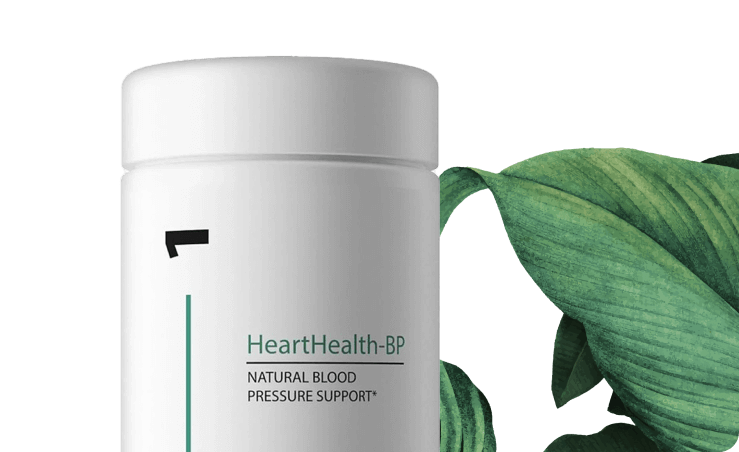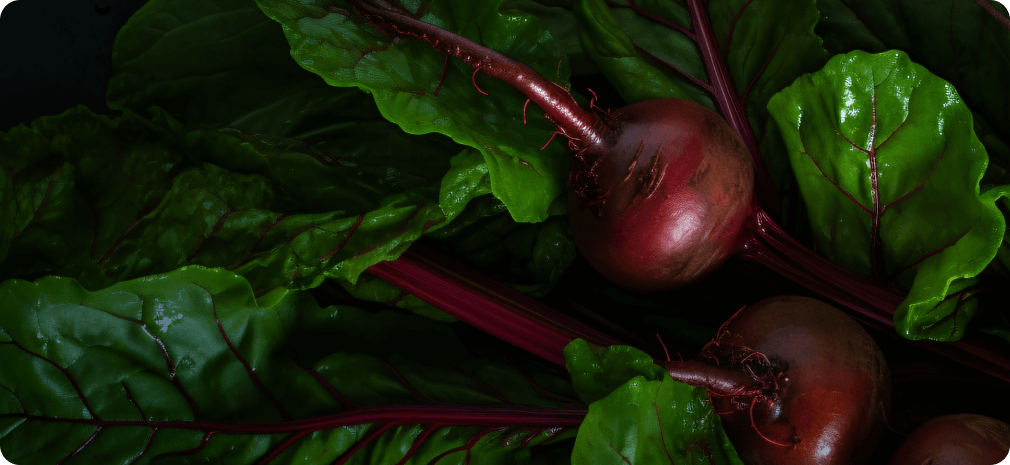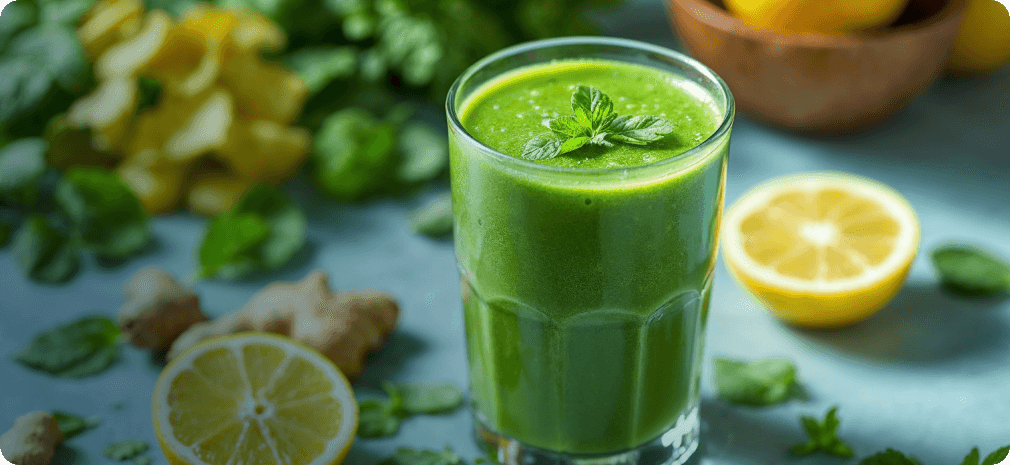Evidence-Based Ingredients for Proven Results
Each ingredient is carefully selected and backed by third-party clinical research to deliver real, scientifically-supported benefits.



We’re committed to transparency and rely on clinical research to validate each ingredient’s effectiveness. Our products are formulated with ingredients supported by rigorous third-party studies, ensuring you receive scientifically-backed results with every serving.
High-quality ingredients
PhD Expertise
Science-Backed
Transparency & Education
Pathway 1
L-Arginine NOS3 (Vascular Endothelial Pathway)
Our formula supports nitric oxide production within the body through the L-Arginine NOS3 pathway, a primary function of the vascular endothelium (the inner lining of blood vessels). This pathway is essential for maintaining blood pressure as it increases nitric oxide, relaxing blood vessels and improving blood flow. Importantly, nitric oxide production through this pathway naturally declines with age, decreasing by up to 50% by age 40.
Key Findings on L-Citrulline’s Role in Blood Pressure Reduction:
- Blood Pressure Impact: Studies suggest daily supplementation of L-Citrulline at doses similar to ours (1.25 grams) can reduce systolic blood pressure by an average of 4-6 mm Hg and diastolic blood pressure by 2-3 mm Hg in individuals with elevated blood pressure.
- Enhanced Bioavailability: Unlike L-Arginine, L-Citrulline bypasses the liver and metabolizes directly in the kidneys, effectively increasing nitric oxide production without the GI discomfort often associated with L-Arginine.
- Mechanism of Action: L-Citrulline activates endothelial nitric oxide synthase (eNOS), leading to improved vascular relaxation, flexibility, and blood flow.

Pathway 1, as a critical source of natural nitric oxide production, plays a vital role in supporting blood pressure and vascular health, especially as nitric oxide levels decline with age. This pathway is part of our comprehensive three-pathway formula, ensuring complete support for optimal heart health.
References
- Schwedhelm, E., et al. “Pharmacokinetics and vascular effects of L-Citrulline in humans.” Journal of Nutrition, 2010.
- Figueroa, A., et al. “Impact of L-Citrulline supplementation on blood pressure in adults.” American Journal of Hypertension, 2011.
- Suzuki, T., et al. “Effects of L-Citrulline supplementation on arterial stiffness and blood pressure.” Hypertension Research, 2012.
Pathway 2
Nitrate-Nitrite Pathway (External Support)
400 mg Nitrates and Blood Pressure Reduction:
Proven by Science Our formula includes a clinically validated dose of 400 mg of nitrates daily, shown to naturally and effectively support blood pressure reduction. Scientific research underscores the powerful impact of this dosage.

Key Findings on 400 mg of Nitrates:
- Systolic BP: Average reduction of 8–11 mm Hg
- Diastolic BP: Average reduction of 4–5.5 mm Hg
- Mechanism: 400 mg of dietary nitrates promotes nitric oxide production, which enhances vasodilation, reduces vascular strain, and supports improved circulation.
These results come from the Nitrate-Nitrite pathway alone—one of three pathways targeted in our formula for comprehensive natural blood pressure support. This multi-pathway approach provides unparalleled support for optimal heart health, making our formula unmatched on the market.
References
- Sivaprakasapillai, B., et al. "Effect of grape seed extract on blood pressure in subjects with prehypertension." Journal of Dietary Supplements, 2009.
- Clifford, T., et al. "Polyphenol-rich supplements and blood pressure: A systematic review." British Journal of Nutrition, 2016.
Pathway 3
Antioxidant ‘Powerhouse’ Support for Vascular Health
Our formula’s unique antioxidant blend of Grape Seed Extract, CoQ10, and Vitamin C provides robust support for nitric oxide (NO) preservation, blood pressure management, and vascular health. Clinical research validates the efficacy of each ingredient in maintaining optimal heart health and blood vessel function.
Key Study Highlights: Antioxidant Blend
1.Grape Seed Extract (150 mg)
- Blood Pressure Impact: Clinical trials demonstrate reductions in systolic BP by 8-12 mm Hg and diastolic BP by 5-8 mm Hg in individuals with elevated blood pressure.
- Mechanism: Rich in proanthocyanidins, Grape Seed Extract activates endothelial nitric oxide synthase (eNOS) to boost the body's natural NO production, while countering oxidative stress. This reduces degradation from reactive oxygen species (ROS), protecting NO levels and enhancing circulation.

References
- Sivaprakasapillai, B., et al. "Effect of grape seed extract on blood pressure in subjects with prehypertension." Journal of Dietary Supplements, 2009.
- Clifford, T., et al. "Polyphenol-rich supplements and blood pressure: A systematic review." British Journal of Nutrition, 2016.
2. Coenzyme Q10 (CoQ10, 90 mg)
- Blood Pressure Impact: Clinical research shows reductions in systolic BP by 6-8 mm Hg and diastolic BP by 4-5 mm Hg.
- Mechanism: CoQ10 supports cellular energy production (ATP), reducing oxidative stress in vascular tissue, which improves vessel elasticity and cardiovascular health.

References
- Hodgson, J.M., et al. "CoQ10 and blood pressure: A systematic review." Hypertension, 2002.Tiano, L., et al. "Effect of CoQ10 on endothelial function." Molecular Nutrition & Food Research, 2007.
3. Vitamin C (80 mg)
- Blood Pressure Impact: Meta-analyses reveal a reduction in systolic BP by 3-5 mm Hg.
- Mechanism: As an antioxidant, Vitamin C reduces ROS, which can otherwise degrade NO, supporting stable blood pressure and vascular health.

Together, this antioxidant blend actively protects nitric oxide levels from oxidative damage, preserving vascular function and aiding blood pressure stability. Our 3-pathway approach—targeting nitric oxide production, dietary nitrate support, and antioxidant protection—ensures comprehensive cardiovascular support, making it uniquely effective and unmatched in the natural blood pressure support market.
References:
- Juraschek, S.P., et al. "Vitamin C supplementation and blood pressure: A meta-analysis." American Journal of Clinical Nutrition, 2012.
Magnesium Bisglycinate Chelate: Supporting Vascular Health
Our formula includes Magnesium Bisglycinate Chelate, a highly bioavailable form of magnesium, chosen for its specific benefits in supporting blood pressure and overall vascular health. Magnesium is essential for proper muscle and nerve function, including the relaxation of blood vessel walls—a critical factor in maintaining healthy blood pressure.
Key Findings on Magnesium’s Role in Blood Pressure Regulation:
- Blood Pressure Impact: Research indicates that magnesium supplementation (100 mg daily) can support reductions in systolic blood pressure by an average of 3-4 mm Hg and diastolic blood pressure by 2-3 mm Hg, particularly in those with magnesium deficiency or elevated blood pressure.
- Mechanism of Action: Magnesium helps regulate calcium and potassium ions, which are essential for healthy blood vessel function and blood pressure. It also reduces vascular resistance, allowing for improved blood flow and circulation.
- Enhanced Absorption: Magnesium Bisglycinate Chelate is known for superior absorption and low GI discomfort, making it highly effective and tolerable compared to other magnesium forms.
Including magnesium as part of our formula enhances vascular relaxation and blood flow, complementing the other ingredients that work synergistically across the three pathways for comprehensive blood pressure and heart health support.

References
- Jee, S.H., et al. “The effect of magnesium supplementation on blood pressure: A meta-analysis of randomized clinical trials.” American Journal of Hypertension, 2002.
- Zhang, X., et al. “Effects of magnesium supplementation on blood pressure: A systematic review and meta-analysis.” Hypertension, 2016.
- Rosanoff, A., Weaver, C.M. “Magnesium and blood pressure: A systematic review of clinical trials.” Nutrients, 2017.
CORE7 Lifestyle: Clinically Supported Impact on Blood Pressure
Our CORE7 Lifestyle approach integrates evidence-based elements proven to support blood pressure reduction naturally. Each area of focus—diet, exercise, stress management, sleep, hydration, breathwork, and detoxification—contributes uniquely to cardiovascular health.
1. Diet: High-Nitrate and Balanced Nutrient Intake
A balanced diet rich in nitrate-dense vegetables, lean proteins, and low in processed foods supports healthy blood pressure. The DASH diet, emphasizing nutrient-dense foods like leafy greens and beets, has shown significant results:
- Blood Pressure Impact: Reduction of up to 11.4 mm Hg systolic and 5.5 mm Hg diastolic in individuals with high blood pressure.
- Mechanism: This diet promotes vascular health by supporting nitric oxide pathways and balancing electrolyte intake for optimal cardiovascular function.

Reference
Sacks, F. M., et al., "Effects on Blood Pressure of Reduced Dietary Sodium and the Dietary Approaches to Stop Hypertension (DASH) Diet." New England Journal of Medicine, 1997.
2. Exercise: Aerobic and Resistance Training
Consistent exercise—especially a blend of aerobic and resistance training—is linked to improved blood pressure and heart health.
- Blood Pressure Impact: Regular exercise can reduce systolic blood pressure by 5-8 mm Hg and diastolic by 3-4 mm Hg in hypertensive individuals.
- Mechanism: Exercise enhances blood vessel flexibility, supports nitric oxide production, and reduces vascular resistance.

Reference
Pescatello, L.S., et al., "Exercise and Hypertension: Reviewing the Mechanisms and Dose-Response." Current Hypertension Reports, 2015.
3. Stress Management: Mindfulness and Relaxation
Chronic stress increases blood pressure. Effective management techniques, like mindfulness and relaxation practices, can counteract this.
- Blood Pressure Impact: Stress reduction practices may lower systolic blood pressure by 4-6 mm Hg.
- Mechanism: Reducing cortisol and adrenaline levels through stress management helps maintain normal vascular function.

Reference
Schneider, R.H., et al., "Stress Reduction in the Secondary Prevention of Cardiovascular Disease." Circulation: Cardiovascular Quality and Outcomes, 2012.
4. Sleep: Quality and Duration
Adequate, restful sleep plays a vital role in cardiovascular health.
- Blood Pressure Impact: Individuals with quality sleep often experience 3-5 mm Hg lower blood pressure compared to those with insufficient sleep.
- Mechanism: Sleep regulates stress hormones and supports vascular repair.

Reference
Gangwisch, J.E., et al., "Sleep Duration as a Risk Factor for Hypertension." Hypertension, 2006.
5. Hydration: Adequate Daily Water Intake
Proper hydration supports blood volume and reduces the workload on the heart.
- Blood Pressure Impact: Staying well-hydrated can support stable blood pressure, particularly when balanced with electrolytes.
- Mechanism: Hydration aids blood flow and prevents blood vessel constriction.

Reference
Thornton, S.N., "The Hydration Equation: Update on Water Balance and Cognitive Performance." Nutrition Reviews, 2010.
6. Breathwork: Controlled Breathing Exercises
Breath-focused practices, like deep breathing and paced respiration, activate the parasympathetic nervous system.
- Blood Pressure Impact: Can lower systolic blood pressure by 4-5 mm Hg.
- Mechanism: Controlled breathing reduces vascular tension and promotes relaxation.

Reference
Joseph, C.N., et al., "Slow Breathing Improves Arterial Baroreflex Sensitivity and Decreases Blood Pressure in Essential Hypertension." Hypertension, 2005.
7. Detoxification: Reducing Toxin Load
Minimizing exposure to toxins, which can negatively impact blood pressure and vascular health, is beneficial.
- Blood Pressure Impact: Detoxification may contribute to more stable blood pressure, though individual responses vary.
- Mechanism: Reducing inflammatory and oxidative stressors supports overall cardiovascular health.

Reference
Galla, H.J., et al., "Environmental Toxins and Hypertension: A Mechanistic Overview." Journal of Hypertension, 2020.
Collectively, these clinically supported lifestyle practices provide comprehensive blood pressure support, synergizing with our three-pathway supplement approach for a robust, natural solution to heart health.
